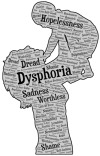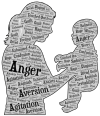When Your Body Tells You to Not Breastfeed-The Connivance of Oxytocin, Prolactin, and Dopamine
- PMID: 40565372
- PMCID: PMC12193670
- DOI: 10.3390/ijms26125909
When Your Body Tells You to Not Breastfeed-The Connivance of Oxytocin, Prolactin, and Dopamine
Abstract
Breastfeeding is universally recognized for its extensive health benefits for both infants and mothers. However, for some women, the experience of breastfeeding can be complicated by intense negative emotional and physical reactions, including phenomena such as dysphoric milk ejection reflex and breastfeeding aversion/agitation. This review explores the neuroendocrine underpinnings of these conditions, emphasizing the interplay between oxytocin, prolactin, and dopamine. Oxytocin, traditionally viewed as a hormone promoting bonding and emotional regulation, can paradoxically provoke a stress response in vulnerable individuals. Prolactin, a key hormone for lactation and maternal behaviors, is implicated in stress resilience and mood regulation, but its dysregulation may contribute to depressive states. Dopamine, critical for reward processing and emotional stability, may underlie the acute emotional dysregulation seen in dysphoric milk ejection reflex. Together, disturbances in these neurohormonal systems may explain the aversive emotional experiences during breastfeeding. An improved understanding of these mechanisms offers critical insights into maternal mental health during lactation and underscores the importance of supportive clinical approaches for affected women.
Keywords: BAA; D-MER; breastfeeding aversion response; breastfeeding aversion/agitation; dopamine; dysphoric milk ejection reflex; oxytocin; prolactin.
Conflict of interest statement
The authors declare no conflicts of interest.
Figures





References
-
- Brockway M.M., Daniel A.I., Reyes S.M., Granger M., McDermid J.M., Chan D., Refvik R., Sidhu K.K., Musse S., Patel P.P., et al. Human Milk Macronutrients and Child Growth and Body Composition in the First Two Years: A Systematic Review. Adv. Nutr. 2024;15:100149. doi: 10.1016/j.advnut.2023.100149. - DOI - PMC - PubMed
Publication types
MeSH terms
Substances
LinkOut - more resources
Full Text Sources
Medical
Miscellaneous

